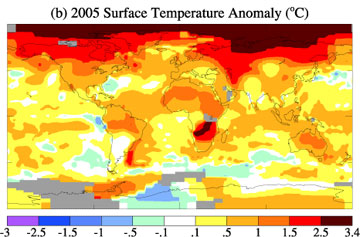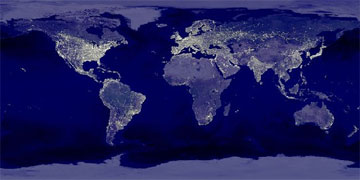Climate change will worsen drought, hunger in Africa
Climate change will worsen drought, hunger in Africa
mongabay.com
April 10, 2007
Africa will suffer the brunt of climate change reports the latest installment of the Intergovernmental Panel on Climate Change (IPCC).
The IPCC says that the projected increases in greenhouse gas emissions will put up to 1.8 billion more Africans “at risk of water stress” this century. Modest rises in temperature will reduce water availability in parts of the continent.
“Between 75 and 250 million people in Africa will be at risk of increased water stress with a one degree C rise; between 350 and 600 million with a two degree C climb and up to 1.8 billion if temperatures rise by three degrees C which could happen by around 2080,” stated a release from the United Nations Environment Programme (UNEP).
The report says that rising sea levels, especially in coastal East Africa, could cost as much as 10 percent of GDP. Tourism is also expected to take a hit as wildlife migrates and becomes endangered and temperatures climb, making the climate less hospitable to visitors.
|
2005 surface temperature anomaly — degrees above normal temperature — according to NASA. Note the deep orange and red color of Africa. Meanwhile an image of the world at night reveals where most carbon emissions come from. Comparison inspired by of Grist.org.
|
For Africans, climate change is expected to bring greater incidence of disease, reduced crop production, and increased occurrence of extreme weather that could worsen droughts and flooding.
Adaptation
UNEP says that climate change adaptation is critical in Africa, though the continent is less able to pay implementation that other parts of the world.
“The report underlines the enormous costs facing Africa as a result of unchecked climate change—costs that are wholly unacceptable for the 800 million people alive today and for the generations to come,” said Achim Steiner, Executive Director of UNEP. “It is the Continent with the least responsibility for the climate change and yet is perversely the Continent with the most at risk if greenhouse gases are not cut”.









